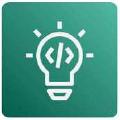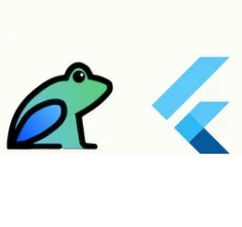|
If you've not visited I Programmer before, this Weekly Digest gives you a taster. It has links to our news with its mix of analysis and comment and the week's additions to Book Watch Archive and the latest Book Review. In our top featured articles this week we explore the way Python uses Unicode without encoding for its strings and UTF-8 encoding for its source files.
To receive this digest automatically by email, sign up for our weekly newsletter.

August 03 - 09, 2023
Featured Articles
|
Programmer's Python Data - Unicode Strings
08 Aug | Mike James

Strings in the era of Unicode are no longer simple. Python uses Unicode without encoding for its strings and UTF-8 encoding for its source files. Find out how it all works in this extract from Programmer's Python: Everything is Data .
|
Identifying Skills Gaps in Your Development Team
03 Aug | Gilad David Maayan

A skills gap refers to a significant discrepancy between the skills that employers need and those that employees possess - be they technical abilities, soft skills, or industry-specific knowledge. Regardless of their nature, skills gaps can pose significant challenges for both employers and employees.
|
|
Programming News and Views
|
Google Proposes Web Integrity Standard Which Appalls Many
09 Aug | Mike James

Google has suggested a far-reaching addition to the web which it calls "Web Integrity Standard". This solves a problem that is important not only to Google but to the entire economy of the web. Some users claim it is the death of ad-blocking and the introduction of DRM for web pages. But could it secure the long-term future of the web?
|
Rust Takes Its Place At Work
09 Aug | Sue Gee

Rather later than planned, the results of the latest Rust Developer Survey, which was conducted in December 2022, are out. They show that more people than ever before are using Rust and that around half of users do so on a daily basis.
|
GnuCOBOL 3.2 Improves Dialect Handling
08 Aug | Kay Ewbank

GnuCOBOL has been updated to add improved dialect handling including changed defaults to better match the selected dialect, a complete new dialect GCOS. The new version also has support for more COBOL statements, intrinsic functions and syntax from both "old" and new dialects.
|
Microsoft Introduces Unity Extension For VSCode
08 Aug | Mike James

Microsoft has announced a preview release of a Unity extension for Visual Studio Code. The extension builds on the C# Dev Kit currently in preview.
|
Amazon Releases Jupyter Code Analysis Extension
07 Aug | Kay Ewbank

Amazon has released a new CodeGuru extension that can be used to identify common problems such as code cell execution order, incorrect API calls, and security.
|
Julia Makes Its Debut in TIOBE Top 20
07 Aug | Janet Swift

The August 2023 TIOBE Index is published today and records the fact that Julia, a dynamic language for technical computing that runs MATLAB and R-style programs and has achieved popularity among the scientific computing community, is included in the top 20 for the very first time. For a young language this is a remarkable achievement.
|
Open Antikythera on Kickstarter
06 Aug | Sue Gee

Regarded as the first analogue computer and named for the Greek island where it was found in a sunken ship, the Antikythera Mechanism is over 2000 years old. Now a functioning replica has been built that uses 3D printed parts and there's a Kickstarter campaign for it.
|
SIGGRAPH 2023 Real-Time Live! Trailer
04 Aug | David Conrad

This year's SIGGRAPH takes place next week and now we bring you the Real-Time Live! Trailer - a taste of what you might expect if you attend the early evening presentation in Los Angeles in person or follow the exclusive live streaming on Twitch.
|
Sci-Hub Founder Receives EFF Award
04 Aug | Sue Gee

The Electronic Frontier Foundation has announced that Alexandra Asanovna Elbakyan, who founded SciHub in 2011 is the recipient of the 2023 EEF Award for Access to Scientific Knowledge.
|
Dart Frog For A Unified Tech Stack
03 Aug | Kay Ewbank

The Flutter consulting firm Very Good Ventures (VGV) has released Dart Frog 1.0, an open source and lightweight framework designed to help Flutter and Dart developers maximize their productivity by having a unified tech stack that enables sharing tooling and models.
|
Nim 2 Released
03 Aug | Alex Denham

There's a new release of Nim, the systems programming language, with improvements including ORC memory management as a default.
|
|
Books of the Week
If you want to purchase, or to know more about, any of the titles listed below from Amazon, click on the book jackets at the top of the right sidebar. If you do make Amazon purchases after this, we may earn a few cents through the Amazon Associates program which is a small source of revenue that helps us to continue posting.
|
Full Review
|
Bare Metal C
Author: Steve Oualline
Publisher: No Starch Press
Date: August 2022
Pages: 304
ISBN: 978-1718501621
Audience: C programmers
Rating: 3
Reviewer: Harry Fairhead
Bare metal C sounds exciting and very basic. Time to find out how the machine really works.
|
Book Watch
|
Azure SQL Hyperscale Revealed (Apress)
This book, subtitled "High-performance Scalable Solutions for Critical Data Workloads" shows how to deploy, configure, and monitor an Azure SQL Hyperscale database in a production environment. Zoran Barać and Daniel Scott-Raynsford begin by showing Hyperscale helps eliminate many of the problems of traditional high-availability and disaster recovery architecture. They then go on to look at how Hyperscale overcomes storage capacity limitations and issues with scale-up times and costs. The book also covers migrating current workloads from traditional architecture to Azure SQL Hyperscale.
|
Telling Stories with Data (Chapman & Hall/CRC)
This book teaches the end-to-end skills needed to do data science and includes applications in R. Dr. Rohan Alexander says this means gathering, cleaning, preparing, and sharing data, then using statistical models to analyse data, writing about the results of those models, drawing conclusions from them, and finally, using the cloud to put a model into production, all done in a reproducible way. The book looks at how the communicate the results of statistical modelling, and also looks at ethics and reproducibility.
|
Neuromined: Triumphing over Technological Tyranny (Fast Company Press)
This book asks whether advances in technology are working for us or against us. Robert Edward Grant and Michael Ashley team up to explore significant questions such as will self-driving cars help us maximize our time and get to our destination safely, or will they erode the autonomy and freedom we feel when we drive ourselves, and what happens if the government, in the name of public health, gains access to the data in our handy fitness trackers and uses it to reward or limit us.
|

Do you want to turn the clock back? You can access I Programmer Weekly back to January 2012 for all the headlines plus the book reviews and articles.
To keep up with the latest news and receive this digest automatically by email, sign up for our weekly newsletter and follow us on Twitter, Facebook, and LinkedIn , where you are welcome to share all our stories.
You can also subscribe to our RSS Feeds - we have one for Full Contents , another for News and also one for Books with details of reviews and additions to Book Watch.
Send your programming press releases, news items or comments to : NewsDesk@i-programmer.info
<ASIN:1871962595>
<ASIN:B09ZGBHMG9>
<ASIN:1718501625>
<ASIN:1484292243>
<ASIN:1032134771>
<ASIN:1639080341>
|














